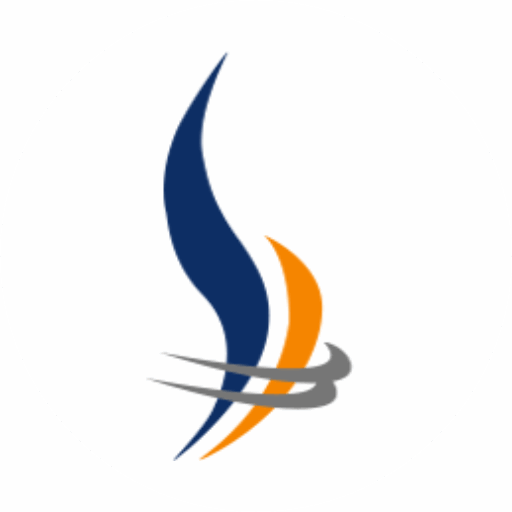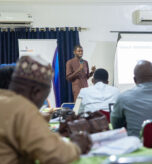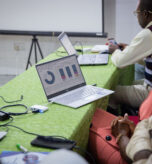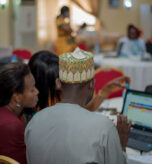Mobility is one of the most fundamental characteristics of human activities as it satisfies the basic need of going from one location to another for numerous purposes. The world has evolved to a point where globally, optimal transportation systems are recognized as a key determinant for socio-economic growth (Chakwizira et al. 2009). However, the dominant modes of transportation vary among countries, influenced by their technological advancement phase, energy access, and financial capabilities (Pojani et al. 2015).
In Africa, road transport emerges as the predominant motorized mode, commanding 80% of the freight movement and 90% of passenger traffic across the continent (Kumar et al. 2008). However, over half of the continent’s countries are classified by the World Bank in 2021 as Low- and Middle-Income Countries (LMICs). This socio-economic status is one of the reasons for high dependence on fossil fuels to power daily transportation on the continent, as against the non-fossil-based means of transportation made available in more advanced economies. The high dependence on fossil fuels for road transportation in Africa has thus, put the mobility of most societies’ demand at the mercy of fuel prices.
In Africa, road transport emerges as the predominant motorized mode, commanding 80% of the freight movement and 90% of passenger traffic across the continent (Kumar et al. 2008). However, over half of the continent’s countries are classified by the World Bank in 2021 as Low- and Middle-Income Countries (LMICs). This socio-economic status is one of the reasons for high dependence on fossil fuels to power daily transportation on the continent, as against the non-fossil-based means of transportation made available in more advanced economies. The high dependence on fossil fuels for road transportation in Africa has thus, put the mobility of most societies’ demand at the mercy of fuel prices.
Fuel subsidies entail governmental financial aid designed to alleviate the financial burden on consumers by mitigating the cost of fuel (Kojima, 2016). It is done to keep fuel prices lower and make it more affordable for the general population. Fuel subsidy removal is the process of ending government financial assistance for fuel, causing prices to rise to market levels (Ikenga et al, 2023). This leads to increased fuel costs and can have economic and social impacts.
Nigeria in recent years has gradually made efforts to ease-off fuel subsidies, which continually resulted in increased transportation costs, affecting all and sundry with higher transportation costs. Despite the Nation’s commitment of the Universal Health Coverage (UHC) which focused on “all people having access to the full range of quality healthcare services they need, without financial hardships” (World Health Organization [WHO], 2023), healthcare seekers are unfortunately not protected from the economic shock caused by rising fuel prices for transportation (Rufai et al, 2021). This results in an increase in the cost of receiving necessary healthcare services, especially in rural communities where there might be a limited number of healthcare facilities positioned far away from the living settlements.
The challenges faced by healthcare seekers include increased costs of healthcare services and transportation, which makes it more expensive to visit these facilities. Furthermore, findings have shown that an average Nigerian would not visit the healthcare facility when their health condition is at a manageable stage, as most would rather visit the facilities when the conditions are out of hand, resulting in increased curative healthcare demand thereby causing more strain on healthcare service providers.
In achieving the goal of “access to healthcare services by all” under the UHC umbrella, we therefore recommend some ways in which healthcare seekers could access services during this period of fuel subsidy removal.
- Telemedicine Solutions: Leveraging advancements in technology to promote telemedicine services in Nigeria. This would allow health seekers to consult with healthcare providers remotely, minimizing the need for physical visits and reducing transportation costs.
- Community Health Initiatives: The establishment of community-based health initiatives can mitigate the need for long-distance travel to larger healthcare facilities, especially in rural areas. This approach revolves around the organized provision of basic healthcare services within localities by the healthcare workers in those communities.
- Public-Private Partnerships: Advocacy for public-private partnerships to enhance transportation services specifically tailored for healthcare purposes. This collaboration can result in subsidized transport options for patients, ensuring they can access medical facilities without financial strain. For instance, a partnership between Bolt or Uber service providers and the Nigerian health authorities could allow health seekers access services at a lower cost of transportation.
- Health Education Campaigns: Awareness campaigns on preventive healthcare measures can be conducted within communities, thus empowering individuals with knowledge about maintaining good health and reducing the frequency of hospital visits. This, in turn could positively contribute to alleviating the impact of increased transportation costs on health seekers.
- While the removal of fuel subsidies presents challenges for health seekers in Nigeria, proactive measures and community-driven solutions can help ease the impact felt. By fostering collaborations between the public and private sectors and leveraging technology, Nigeria can create a healthcare system that is more resilient to economic shocks. This will ensure that every individual has access to the medical care they need, irrespective of their socio-economic status, thereby putting the nation back on track to achieving the UHC goal.
References
- Chakwizira, J. A. M. E. S., & Mashiri, M. (2009). Contribution of transport governance to socio-economic development in South Africa. Southern African Transport Conference.
- IKENGA, A. F., & OLUKA, N. L. (2023). An examination of the benefits and challenges of the fuel subsidy removal on the Nigerian economy in the fourth republic. International Journal of Applied Research in Social Sciences, 5(6), 128-142.
- Kojima, M. (2016). Fossil fuel subsidy and pricing policies: recent developing country experience. World Bank Policy Research Working Paper, (7531).
- Kumar, A., & Barrett, F. (2008). Stuck in traffic: Urban transport in Africa. AICD Background paper, 1.
- Pojani, D., & Stead, D. (2015). Sustainable urban transport in the developing world: beyond megacities. Sustainability, 7(6), 7784-7805.
- Rufai, A. M., Ogunniyi, A. I., Abioye, O. D., Birindwa, A. B., Olagunju, K. O., & Omotayo, A. O. (2021). Does economic shocks influence household’s healthcare expenditure? Evidence from rural Nigeria. Heliyon, 7(5), e06897. https://doi.org/10.1016/j.heliyon.2021.e06897
- WHO, (2023). Universal health coverage. Accessed on January 12, 2023, from https://www.who.int/news-room/fact-sheets/detail/universal-health-coverage-(uhc)




